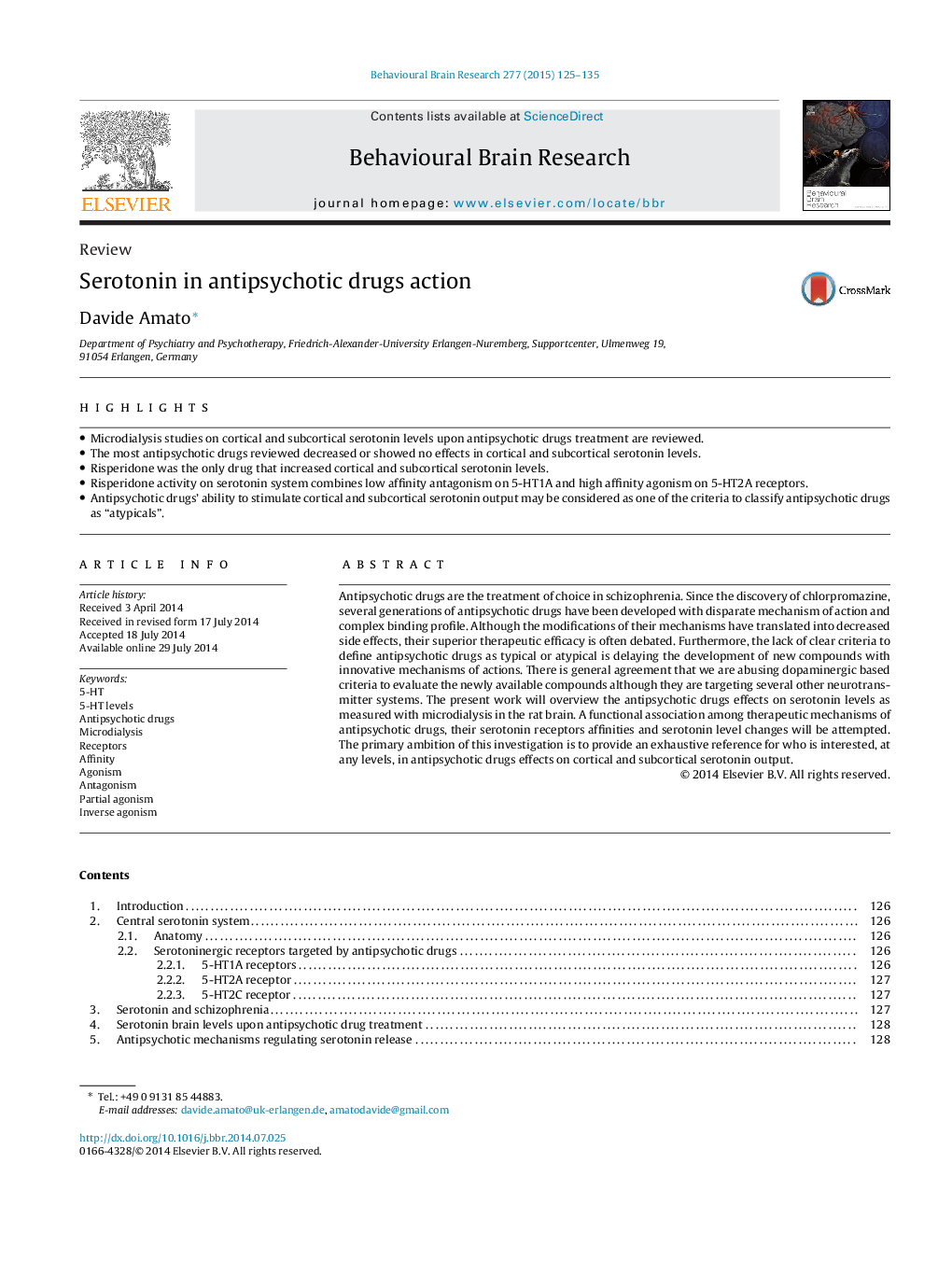| Article ID | Journal | Published Year | Pages | File Type |
|---|---|---|---|---|
| 6257394 | Behavioural Brain Research | 2015 | 11 Pages |
â¢Microdialysis studies on cortical and subcortical serotonin levels upon antipsychotic drugs treatment are reviewed.â¢The most antipsychotic drugs reviewed decreased or showed no effects in cortical and subcortical serotonin levels.â¢Risperidone was the only drug that increased cortical and subcortical serotonin levels.â¢Risperidone activity on serotonin system combines low affinity antagonism on 5-HT1A and high affinity agonism on 5-HT2A receptors.â¢Antipsychotic drugs' ability to stimulate cortical and subcortical serotonin output may be considered as one of the criteria to classify antipsychotic drugs as “atypicals”.
Antipsychotic drugs are the treatment of choice in schizophrenia. Since the discovery of chlorpromazine, several generations of antipsychotic drugs have been developed with disparate mechanism of action and complex binding profile. Although the modifications of their mechanisms have translated into decreased side effects, their superior therapeutic efficacy is often debated. Furthermore, the lack of clear criteria to define antipsychotic drugs as typical or atypical is delaying the development of new compounds with innovative mechanisms of actions. There is general agreement that we are abusing dopaminergic based criteria to evaluate the newly available compounds although they are targeting several other neurotransmitter systems. The present work will overview the antipsychotic drugs effects on serotonin levels as measured with microdialysis in the rat brain. A functional association among therapeutic mechanisms of antipsychotic drugs, their serotonin receptors affinities and serotonin level changes will be attempted. The primary ambition of this investigation is to provide an exhaustive reference for who is interested, at any levels, in antipsychotic drugs effects on cortical and subcortical serotonin output.
